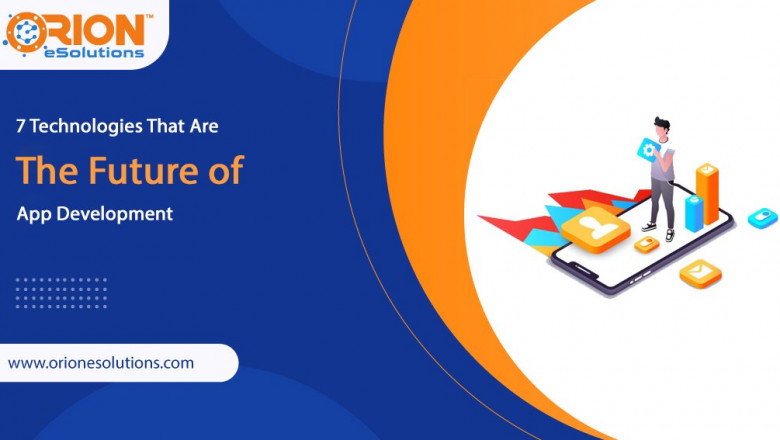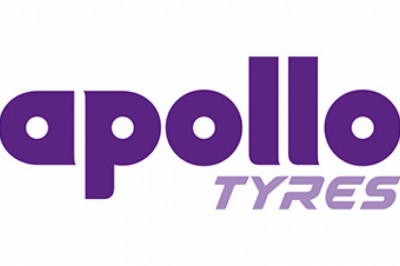views

7 TECHNOLOGIES THAT ARE THE FUTURE OF APP DEVELOPMENT
numbers.
- GooglePlay has around 2.87 million apps for download.
- Apple store has about 1.96 million apps that can be downloaded.
- It says that the smartphone user, on average, uses 10 apps a day.
Now, let us know about mobile app development.
Mobile app development
What does it mean by mobile application development?
It is the work that involves writing a set of procedures and instructions to develop an app for handheld devices. These devices can be smartphones, tabs, or other wireless gadgets.
A specialty of mobile application development is that it is built for a unique mobile feature. But what is meant by unique features?
Suppose developers are working on an application for Android, then they will make sure that it functions smoothly on Android phones as the code is specifically written for Android. Moreover, there are different apps for iPhones or Android, etc. In addition, iOS and Android are the two leading mobile application development platforms.
- According to Statista, By 2023, Android is expected to contribute 87.4 % and iOS with 12.6 % of the worldwide smartphone shipments.
In this post, you will read about 7 technologies that will nurture the future of mobile application development.
-
5G and its significance will rise and stay.
- Precedence Research has revealed the giant market size expectation for the 5G services. By 2030, it is said to reach USD 1.87 trillion.
The fifth generation of wireless technology is the basis of many technological advantages taking place. But what does 5G offer?
The one and most important answer to this question is speed. 5G is said to be 100x faster than the current present network speed. And this brings in much more benefits for applications. The extensive data transfer will take a few milliseconds. For example, in healthcare apps, the real-time data and its effective and continuous updates will have more significance.
-
Augmented reality has entered the application development.
These two technologies have their footprints in almost every sector. Augmented reality is used to impose virtual objects in real-life scenarios. For example, IKEA’s app has initiated the use of augmented reality, and users can actually see how a particular product will look in their homes.
-
Virtual reality will be there for real.
Virtual reality, as the name suggests, is an experience of the virtual world. The apps with the feature of virtual reality can let users witness virtual tours or events with VR sets.
Both augmented reality and virtual reality will continue nuturing gaming, education, healthcare, and many other areas.
-
IoT: makes the application smart and the user smarter!
These days not only people but also devices are getting smarter. Thanks to IoT for making it happen. Smart devices and gadgets are slowly but effectively spreading their aura in both commercial and domestic usage.
For example, a bunch of smart devices connected with single control on a smartphone app is one of the latest and growing trends. In addition, these devices or gadgets can be lights, fans, ACs, curtains, switches, doors, and whatnot!
Let us understand its smart use.
Suppose you are out with your family for a vacation, and you forgot to turn off a fan or some lights. IoT will be there to help you! With a single mobile application, you will be able to turn them off to save on electricity bills and blame!
-
Blockchain is much more than crypto!
Blockchain technology is in boom as the world is becoming aware of the word blockchain. Blockchain technology has much potential to bring significant changes in many domains. Moreover, it is much more than just crypto.
Blockchain has the unique feature of irreversible records or record tracks. Therefore, a blockchain-enabled system has maximum security as every event is recorded. Thus this reduces fraud.
In mobile applications, blockchain can be helpful in addressing in-app purchase challenges. Moreover, it can help in advertising models. Further, blockchain tools are readily available and accessible to developers.
-
Will artificial intelligence still be there?
Well, the answer is Yes! Artificial intelligence is currently present in some of your favorite apps. Don’t you know?
When you order food online from an app, what if it never arrives? You will simply enter the help center of that app and chat with the concerned person. But that’s not the person you talk with! Most of the time, it is AI-enabled chatbots. They help you solve your query until the issue is addressed to an actual person.
Moreover, in the future, apps can have AI-based features such as face/speech or image recognition, accurate predictions, maintenance, etc.
-
Cloud computing for smartphones
Cloud computing technology is a boon for data storage. Can you recollect the situation when you needed to delete the phone memory to install any application?
However, today’s smartphone has many more applications already installed on it. But according to individuals’ use and preferences, many other applications are added. Thus to make your phone’s space free, cloud computing can help you with data storage. Another benefit of this technology is that it can let you use that data on another device.
Bottom Line
- According to Build Fire, the revenue of mobile applications by 2023 will be USD 935 billion.
There is extensive development going on in each field. Moreover, there are mobile applications in various areas with unique features. Technologies mentioned above nurture this growth. Furthermore, the contribution of expert app developers from Orion eSolutions can significantly impact the evolution of an organization with app development services.












